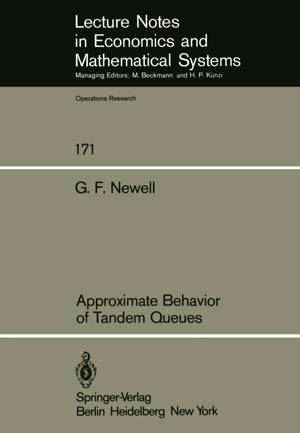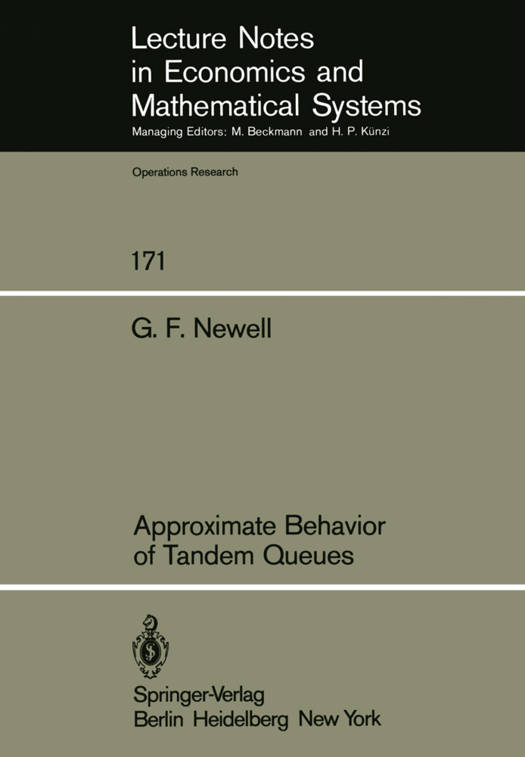
- Afhalen na 1 uur in een winkel met voorraad
- Gratis thuislevering in België vanaf € 30
- Ruim aanbod met 7 miljoen producten
- Afhalen na 1 uur in een winkel met voorraad
- Gratis thuislevering in België vanaf € 30
- Ruim aanbod met 7 miljoen producten
Zoeken
Omschrijving
The following monograph deals with the approximate stochastic behavior of a system consisting of a sequence of servers in series with finite storage between consecutive servers. The methods employ deterministic queueing and diffusion approximations which are valid under conditions in which the storages and the queue lengths are typically large compared with 1. One can disregard the fact that the customer counts must be integer valued and treat the queue as if it were a (stochastic) continuous fluid. In these approximations, it is not necessary to describe the detailed probability distribution of service times; it suffices simply to specify the rate of service and the variance rate (the variance of the number served per unit time). Specifically, customers are considered to originate from an infinite reservoir. They first pass through a server with service rate O' vari- ance rate O' into a storage of finite capacity c . They then pass l through a server with service rate l' variance rate l' into a storage of capacity c ' etc., until finally, after passing through an nth server, 2 they go into an infinite reservoir (disappear). If any jth storage become, n, the service at the j-lth server is interrupted full j = 1, 2, and, of course, if a jth storage becomes empty the jth server is inter- rupted; otherwise, services work at their maximum rate.
Specificaties
Betrokkenen
- Auteur(s):
- Uitgeverij:
Inhoud
- Aantal bladzijden:
- 414
- Taal:
- Engels
- Reeks:
- Reeksnummer:
- nr. 171
Eigenschappen
- Productcode (EAN):
- 9783540095521
- Verschijningsdatum:
- 1/09/1979
- Uitvoering:
- Paperback
- Formaat:
- Trade paperback (VS)
- Afmetingen:
- 170 mm x 244 mm
- Gewicht:
- 675 g

Alleen bij Standaard Boekhandel
+ 210 punten op je klantenkaart van Standaard Boekhandel
Beoordelingen
We publiceren alleen reviews die voldoen aan de voorwaarden voor reviews. Bekijk onze voorwaarden voor reviews.











